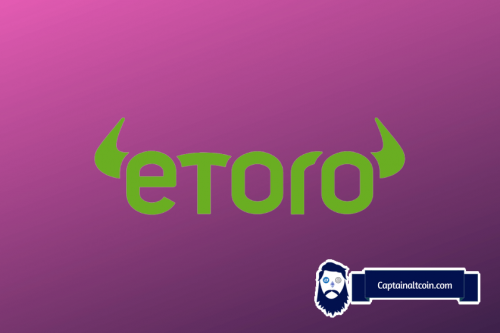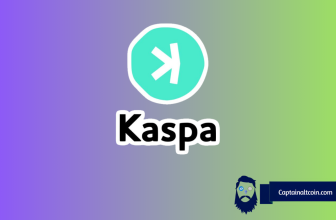
New crypto ETFs in 2025 now look like a real possibility with Bloomberg and Polymarket giving a decent chance for some cryptos such as XRP, SOL, LTC, DOGE or ADA to get spot ETFs approved this year.
ADA is at 71% chance based on data from Polymarket. But, if ADA ETFs do get approved, how would this affect price? What if these ETFs get 5% inflows of BTC ETFs from the first 15 months?
Keep in mind that this assumptions are made based on the current ADA price so if ETFs actually get approved at the current ADA price.
What you'll learn 👉
Calculating Potential ADA ETF Inflows
As of April 30, 2025, U.S. spot Bitcoin ETFs have accumulated approximately $39.17 billion in total net inflows since their launch in January 2024, according to data from Farside Investors.
If a Cardano ETF were to capture 5% of these Bitcoin ETF inflows, it would amount to roughly $1.96 billion. This is a straightforward calculation: $39.17 billion multiplied by 5% gives us $1.9585 billion in potential inflows for an ADA ETF.
To understand how this might affect ADA’s price, we need to look at the current market metrics. Right now, ADA trades at approximately $0.68 per coin. With a circulating supply of about 35.7 billion ADA, this gives Cardano a current market cap of roughly $24.3 billion.
#ETF News: @Bloomberg Intelligence has presented its rating of the chances of crypto ETF approvals in 2025
— MartyParty (@martypartymusic) April 30, 2025
▪️ 90% probability for $LTC and $SOL
▪️ 85% for $XRP
▪️ 80% for $DOGE and $HBAR
▪️ 75% for $DOT, $ADA and $AVAX pic.twitter.com/Axih6IvUqU
Potential ADA Price Impact Scenarios
If we add the potential ETF inflows to Cardano’s market cap, we can estimate the price impact. In an ideal scenario where 100% of ETF inflows translate to direct buying pressure on ADA, the calculation is straightforward. We’d add the full $1.9585 billion to the existing market cap of $24.3 billion, resulting in a new market cap of about $26.24 billion.
With the same circulating supply of 35.7 billion ADA, the new price would be around $0.735 per coin. This represents an 8% increase from the current price of $0.68.
However, this ideal scenario rarely happens in practice. A more realistic approach is to consider that only a portion of ETF inflows create immediate buying pressure on the open market. Many ETFs use over-the-counter trading or accumulate assets gradually to avoid market disruption.
If we assume a more conservative scenario where only 30% of inflows reflect immediate buying pressure, the impact would be smaller. Thirty percent of $1.9585 billion is about $587.5 million. Adding this to the current market cap gives us $24.87 billion. This would result in a new price of approximately $0.697, representing a more modest 2.5% increase.
Why ETF Approval Might Not Send ADA to the Moon
There are several reasons why an ADA ETF wouldn’t automatically trigger massive price increases. First, ETF inflows don’t directly translate to immediate asset purchases. When an ETF launches, the managers typically accumulate assets slowly to minimize slippage.
They often use over-the-counter trading desks or work with custodians rather than buying directly on exchanges. This means that even if billions flow into an ADA ETF, only a fraction might create immediate buying pressure.
Second, Cardano’s supply is significantly larger than Bitcoin’s. With over 35.7 billion ADA in circulation compared to Bitcoin’s maximum 21 million coins, Cardano has more than 1,600 times the number of coins. This large supply makes it harder for any single event, even a billion-dollar ETF, to significantly move the price in the short term.
Third, markets often price in expectations before events actually happen. The crypto market follows the classic “buy the rumor, sell the news” pattern. By the time an ADA ETF receives approval, much of the anticipated impact may already be reflected in the price. Unless the ETF inflows drastically exceed market expectations, the actual price gains following approval might be muted.
🇺🇸 JUST IN: The odds for Cardano $ADA spot ETF approval in 2025 jumped to 71%, according to Polymarket. pic.twitter.com/ulGfsFiCya
— Cardanians (CRDN) (@Cardanians_io) April 30, 2025
Fourth, institutional demand differs from retail interest. Even with ETF approval, ADA is still perceived primarily as a retail-focused altcoin. Institutional investors tend to be conservative and may prefer Bitcoin or Ethereum due to their established regulatory clarity and deeper liquidity. This might limit immediate institutional adoption of an ADA ETF.
Finally, sustainable price growth requires more than just investment vehicles. While an ETF would certainly boost Cardano’s credibility in traditional finance circles, the cryptocurrency’s long-term value depends on ecosystem growth, decentralized finance activity, and real-world adoption of its technology. Without progress in these areas, any price gains from ETF approval might be temporary.
Read also: Should You Throw $1,000 Into Cardano Right Now? ADA Price Outlook
The Bigger Picture for Cardano
An ADA ETF would be a positive development for Cardano, potentially bringing new credibility and modest capital inflows. However, it’s important to keep expectations realistic. Based on our calculations, if an ADA ETF captures 5% of Bitcoin ETF inflows, we might see ADA price in the $0.70-$0.74 range in the best-case scenario.
True price growth ultimately requires adoption, utility, and ongoing development momentum. While an ETF approval would be a bullish signal, it’s not a magic solution that will automatically send prices soaring. Investors should expect gradual growth rather than an immediate price explosion, unless broader crypto market sentiment also turns extremely positive.
Subscribe to our YouTube channel for daily crypto updates, market insights, and expert analysis.
We recommend eToro
Wide range of assets: cryptocurrencies alongside other investment products such as stocks and ETFs.
Copy trading: allows users to copy the trades of leading traders, for free.
User-friendly: eToro’s web-based platform and mobile app are user-friendly and easy to navigate.







